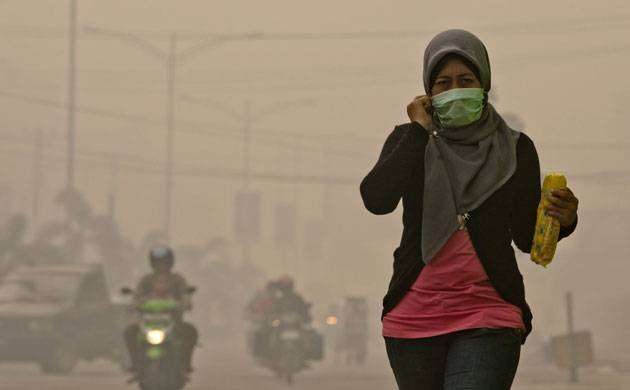New Delhi: Toxic Air And Covid-19 Together Are Going To Worsen Up The Scenario Soon!!!.

NEW DELHI — As a thick quilt of smog wrapped itself around New Delhi on Thursday, signaling the start of the fall pollution season, doctors and scientists warned that the deteriorating air quality could make the city’s COVID-19 problems even worse. One of the most common symptoms of severe coronavirus cases is breathing difficulty. And doctors say that if the ambient air suddenly becomes more toxic, as it does every year around this time in northern India, then more people who become infected by the virus might end up in the hospital or die. “If two people are shooting at the lungs, then obviously the lungs will have more problems,” said Arvind Kumar, a chest surgeon and founder of the Lung Care Foundation in New Delhi, a group that raises awareness about respiratory problems.
India is now struggling with two major health challenges that are both assaulting the respiratory system and peaking at the same time. Coronavirus cases are spreading far and wide, putting the nation on track in the coming weeks to have the highest recorded caseload of viruses. With 7.3 million infections reported, it is just behind the 7.9 million in the United States. And every day, India outperforms the United States by about 10,000 more cases a day of new infections, even though India's death rate remains much lower. India's vexing air pollution that shoots up in the fall and winter is in the background. The rapid economic growth of the past two decades has left Indian cities terribly polluted and, along with it, increased urbanisation and congestion.
India was once again home to 14 of the world's 20 cities with the most toxic air last year, and health experts have outlined how such conditions can lead to brain damage, respiratory problems, and early death. Air temperatures and wind speeds drop in the fall, condensing pollutants across the cities of India, especially in the north. And the farmers burn stalks and reject their crops in the nearby rural areas, sending out massive clouds of black smoke swirling for miles. There were five times as many farm refuse fires in northern India this year as in the same timeframe last year, and experts say it's a bad sign of what's to come. An Indian economy shattered by the pandemic has been an unusual bright spot in the agriculture sector, and pollution experts worry that more cultivation would mean more fire.
Jai Dhar Gupta, an Ivy League-educated environmental activist and businessman, said, "My gut is it's going to be a bumper, bumper harvest and a bumper, bumper combustion case, probably the biggest of our lifetime. And now that you have the combined effect of a respiratory virus and respiratory contaminants, every specialist in public health is holding his breath to see what's going to happen," said Gupta. “We're just sitting ducks.” Doctors say that long-term exposure to severely polluted air can cause chronic inflammation of the lungs, which can make people more vulnerable to coronavirus exposure. A recent study from Italy found a link between long-term dirty air exposure and a rise in excess mortality from the coronavirus, a measure of above-normal deaths.
"COVID would have a higher incidence of pollution-afflicted areas," said Kumar, the chest surgeon. "And they then have a higher risk of mortality until this population gets COVID." Up until now, this year, people in New Delhi were spoiled in terms of breathable weather. Delhi's skies turned a miraculous blue when a coronavirus lockdown in the spring shut down several industries and kept vehicles off the road. In decades, it was the cleanest weather, and at night, people felt like they were being treated to a display of stars. Constellations that had not been seen for years were sparkling over the blocks of flats.
That has, however, become a dim memory. The sky has returned to its normal hazy grey, and now the city smells of smoke. This year, the Delhi government is doing more to tackle pollution, including setting up a war room to track hot spots for pollution and turning to anti-smog guns that blast mist into the air to knock the dust down. Officials in Delhi, which is run by a progressive opposition political group, were locked in a blame game Thursday with national politicians who are part of Prime Minister Narendra Modi's right-leaning administration. The Delhi officials blamed the Modi government for not doing enough to avoid the burning of crops in the capital-ringing states. Officials of the Modi administration argued that crop burning only contributed a minuscule amount to total air pollution, and they blamed the government of Delhi for not doing enough to control dust.
Due to the pandemic, many more people in India's cities are wearing masks these days, but experts say this probably won't help much. Most people wear fabric masks or masks of the surgical kind that do not seal well and do not prevent anyone from inhaling tiny particles of pollutants (or virus, either). On Thursday, pollution warnings whizzed around the city through WhatsApp messages. "The amount of pollution reported in Delhi was dangerous. 335, referring to an Air Quality Index reading of 335, about six times as bad as New York City's", read one post. The message went on:" Be Careful. Seniors don't go out. Wear your mask.
TAGGED :



